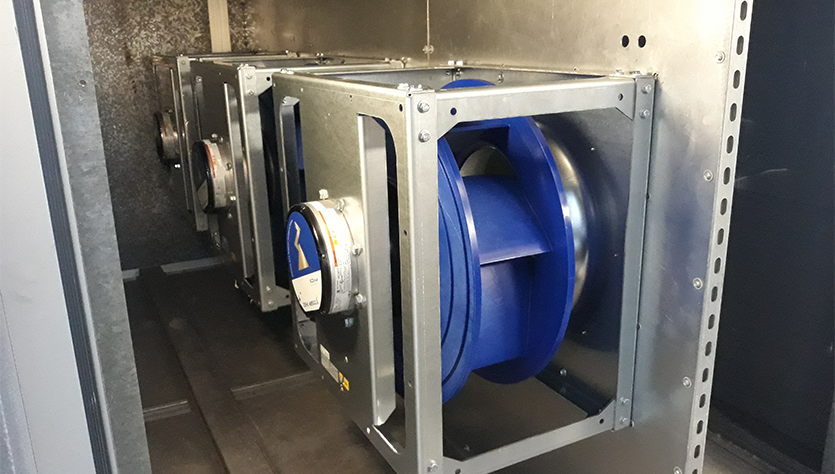The University of East Anglia chose to procure a suite of energy conservation measures through the RE:FIT framework and after assessing all tenders thoroughly, they awarded the contract to Vital Energi. The project was underpinned with an energy performance contract which ensures that the installed measures deliver a minimum of financial and carbon savings.
The University of East Anglia (UEA) have made a commitment to reduce their energy usage by 25% by 2020 compared to the 2013/14 baseline when their gas and electricity spend was approximately £4 million per annum. As part of this plan The University have made a £1 million investment in energy conservation measures (ECMs), which will see the implementation of a range of technologies to save energy and reduce carbon emissions.
The contract for the provision of ECMs at UEA was procured through the RE:FIT framework and we identified and delivered a range of ECMs as well as providing an energy performance contract which will guarantee financial savings and carbon reduction. Phase 1 of the project was completed in during the summer of 2018 and targeted the University’s highest energy consuming buildings, and there is an option to proceed to future phases, over a further 4 years, to implement ECMs across the rest of the University’s estate.

We analysed the University’s energy usage and performed a survey of areas which could yield savings such as improved building controls, air handling and lighting. In phase 1 this was restricted to the buildings which had the largest energy usage. These included 6 academic buildings and 22 halls of residence blocks.
During the design period we installed vCOMS (Vital Controls Optimisations and Management Service) to collect and analyse energy and operational data from the sites Building Management System (BMS). Using the information obtained alongside surveys of the existing infrastructure it was possible to develop a number of reliable and robust profit generating upgrades which would save significant energy usage and, therefore, lower carbon emissions.
The following recommendations were put forward in an Investment Grade Proposal to the University, which explains key themes such as investment costs, payback times, energy savings, carbon reductions and Measurement & Verification methodologies: